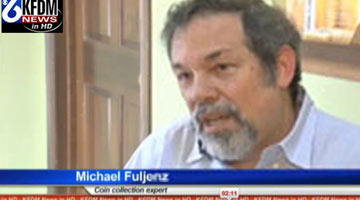"The fact that since 1986 Mike Fuljenz has won so many major awards in so many diverse categories, including the NLG top award 'The Clemy,' underscores how important his peers in the rare coin and precious metals markets view Mike's excellent analysis and reporting."
Ed Reiter, Executive Director,
Numismatic Literary Guild &
New York Times Former Columnist
"The Congressional Medal of Honor Foundation salutes Mike Fuljenz for all he does to support our men and women in uniform who defend our freedoms."
Nicholas Kehoe, Former President
Congressional Medal of Honor Foundation & Lieutenant General USAF (Ret)
"Count me among Mike Fuljenz's numerous admirers. His strong leadership, input and support of the American Numismatic Association were instrumental in formulating ANA's coin grading and authentication policies, which is a testament to his commitment to the industry. He is a leader in the coin industry."
Robert Leuver, Former Director,
Bureau of Engraving & Printing
Former Executive Director,
American Numismatic Association
"Mike Fuljenz has been a member in good standing of the American Numismatic Association (ANA) since 1980. Mike has taught seminars for ANA almost every year since 1982 on advanced coin grading, detection of counterfeit coins, and our "super course" on gold, silver and commemorative coins…He is simply a terrific teacher."
James Taylor, Former Director,
ANA Educational Services
Read more...




 KFDM-TV Channel 6 in my hometown of Beaumont,Texas recently did a Crime Stoppers story about a Texas dealer who reportedly paid only $16,000 for nearly $250,000 of coins sent to him by an 82-year old California woman. The interviewer asked me for consumer protection advice so other people can avoid encountering this kind of problem. My suggestion was simply to remember: “It’s important to do your homework before selling or buying gold and silver coins.”
KFDM-TV Channel 6 in my hometown of Beaumont,Texas recently did a Crime Stoppers story about a Texas dealer who reportedly paid only $16,000 for nearly $250,000 of coins sent to him by an 82-year old California woman. The interviewer asked me for consumer protection advice so other people can avoid encountering this kind of problem. My suggestion was simply to remember: “It’s important to do your homework before selling or buying gold and silver coins.”